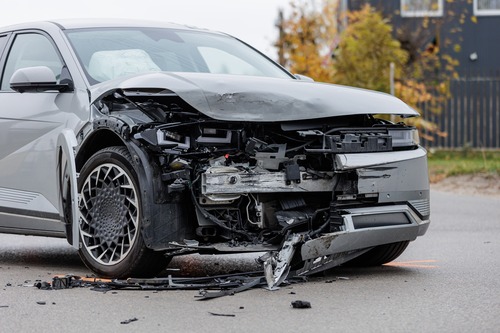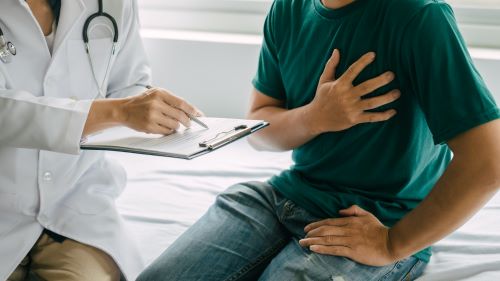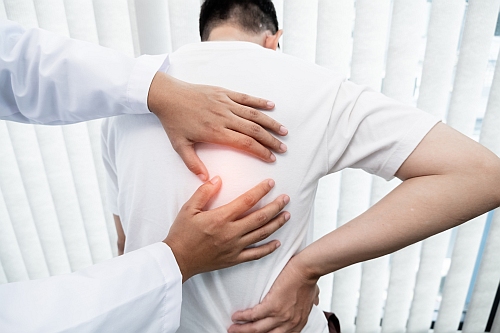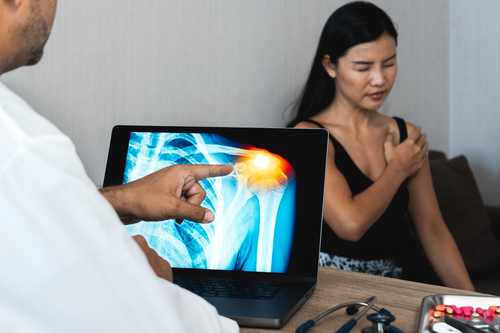Experiencing delayed chest pain after a car accident can be alarming and raises many questions about its cause and severity, especially considering the range of car accident injuries that can occur. While the pain might not surface immediately, it could indicate underlying injuries ranging from minor muscle strains to more serious conditions like fractured ribs, internal bleeding, or even cardiac contusions. Ignoring this symptom can lead to worsening complications, so seeking prompt medical attention is crucial.
In this blog, we’ll explore the causes and symptoms of delayed chest pain after a car accident, discuss the types of injuries associated with it, and highlight the importance of seeking prompt medical attention, including consulting an experienced Atlanta car accident doctor, to ensure proper diagnosis, treatment, and documentation for legal purposes.
Causes of Delayed Chest Pain
Understanding the root causes of delayed chest pain after a car accident is crucial for effective treatment and recovery. Various factors can contribute to this pain, making it essential to recognize the symptoms of a chest injury and seek appropriate medical care.
Blunt Force Trauma
Blunt force trauma is a common cause of delayed chest pain. When a vehicle collides, the impact can lead to bruising and fractures in the chest area, including broken ribs. This type of injury may not present immediate symptoms, but it can result in significant pain later on. Additionally, the force of the impact can cause potential damage to internal organs, which may not be immediately apparent. Victims should be vigilant about any changes in their condition following an accident.
Seat Belt and Airbag Injuries
Seat belts and airbags are designed to protect occupants during a crash, but they can also cause injuries. The force exerted by these safety devices can lead to fractures and internal injuries, particularly in the chest area, which can be serious injuries. While these injuries may not be felt right away, they can manifest as delayed chest pain. It is important for individuals involved in an accident to be aware of these risks and monitor their symptoms closely.
Muscle Strain and Sprain
In addition to blunt force trauma, soft tissue injuries such as muscle strain and sprain can contribute to delayed chest pain. When a person braces for impact during a collision, the sudden tension can lead to muscle injuries. These injuries may not be felt immediately but can develop into pain and discomfort over time. Recognizing the signs of muscle strain is key to understanding the full scope of injuries that may occur after an accident.
Being aware of these causes is vital for anyone who has experienced a car accident. Delayed chest pain should never be ignored, as it could indicate serious underlying issues. Seeking medical attention promptly can help ensure proper diagnosis and treatment.
Types of Injuries Associated with Delayed Chest Pain
After a car accident, victims may experience delayed chest pain due to various injuries, including a broken rib. Understanding these injuries is crucial for proper diagnosis and treatment. Here are some common types:
Cardiac Contusion
A cardiac contusion occurs when the heart muscle sustains bruising, which can be a serious injury. This injury can lead to serious complications, including arrhythmias or reduced heart function. Symptoms may not appear immediately, making it essential to seek medical attention after an accident.
Lung Injuries
Lung injuries, often associated with broken ribs, can manifest as pulmonary contusions or punctures. These injuries can hinder breathing and cause significant discomfort. Symptoms like coughing up blood or difficulty breathing may develop over time, indicating the need for urgent medical evaluation.
Fractured Ribs and Sternum
Fractured ribs and sternum are common injuries in car accidents, often resulting from blunt force impact to the upper body. Delayed pain may arise as swelling and inflammation develop around the fracture site. Untreated fractures can lead to complications, such as punctured lungs or chronic pain.
Internal Organ Damage
Internal organ damage is often hidden and can be life-threatening, resulting from serious injuries. Injuries to organs like the liver or spleen may not show immediate symptoms. Victims might experience delayed pain or discomfort, which could indicate serious underlying issues. Prompt medical assessment is vital to address these potentially dangerous injuries.
Symptoms of Delayed Chest Pain
After a car accident, if you have suffered chest pain, recognizing the symptoms can be crucial for your health and legal case. Here are some common symptoms to watch for:
Shortness of Breath or Difficulty Breathing
Experiencing shortness of breath or chest pains can indicate serious lung or heart issues. This symptom may arise from injuries to the chest area, including lung contusions or cardiac complications. If you notice these symptoms, seek medical attention right away.
Pressure or Tightness in the Chest
Feeling pressure or tightness in the chest could signal serious internal injuries. It may be a sign of fractured ribs or damage to the heart or lungs. This symptom should never be ignored, as it may escalate quickly and necessitate immediate medical attention.
Radiating Pain
Radiating pain refers to discomfort that spreads to other areas, such as the back or arms. This type of pain can suggest nerve damage, significant injuries to internal organs, or a soft tissue injury. If you experience this symptom, it’s essential to consult a medical professional.
Nausea or Vomiting
Nausea or vomiting can be linked to severe internal trauma. These symptoms may indicate injuries to the abdominal area or complications from chest injuries. If you feel nauseous after an accident, get medical help to rule out any serious conditions and receive appropriate medical treatment.
Recognizing these symptoms is vital for ensuring prompt medical care. Delayed chest pain can lead to complications if not addressed quickly. Always prioritize your health and seek medical attention if you experience any of these symptoms after a car accident.
Importance of Seeking Medical Attention
After experiencing delayed chest pain following a car accident, seeking medical attention is crucial. Many injuries, such as internal organ damage or fractured ribs, may not show symptoms right away, making diagnosing chest pain crucial. A thorough medical evaluation can help identify these hidden injuries before they worsen. Medical professionals will conduct tests, such as X-rays or CT scans, to assess your condition accurately. This prompt evaluation can be vital in preventing complications and ensuring a proper recovery.
Documentation for Legal Purposes
In addition to health concerns, obtaining medical attention serves a significant legal purpose for any car accident victim. Documentation of your injuries is essential for any personal injury claim you may pursue. Medical records provide evidence of your injuries and their connection to the accident. This documentation is critical when dealing with insurance companies or pursuing settlements. Having a clear medical history strengthens your case and can influence the outcome of your claim. Thus, timely medical attention not only safeguards your health but also protects your legal rights.
Consult With an Experienced Car Accident Doctor ASAP!
If you’re experiencing delayed chest pain after a car accident, don’t wait to seek medical treatment. At Georgia Spine & Orthopaedics, our team of experienced medical professionals is here to provide you with expert care, ensuring a proper diagnosis and treatment plan tailored to your needs.
Contact us at 678-929-4494 today to schedule an appointment!








